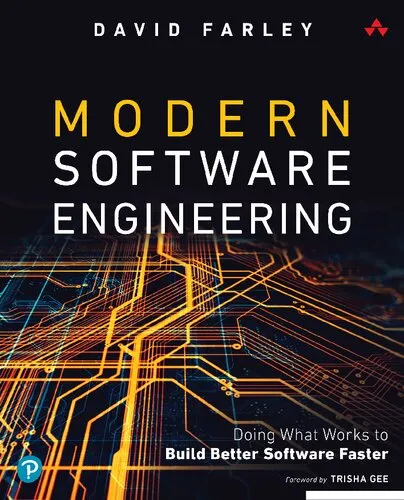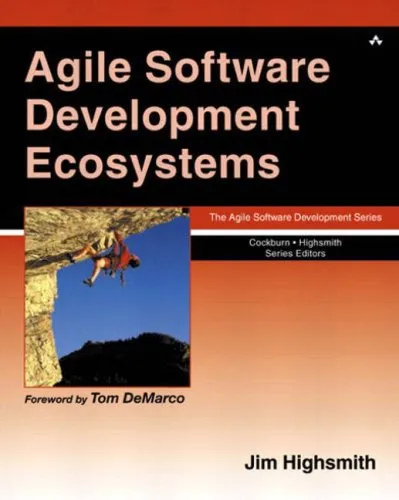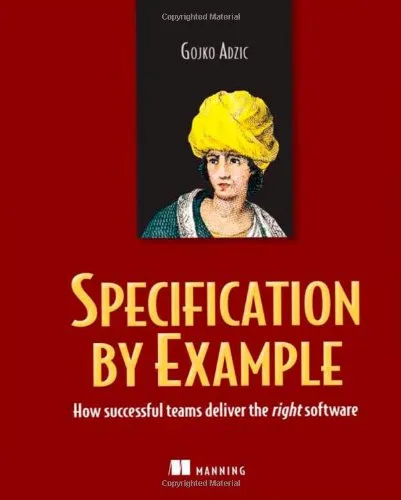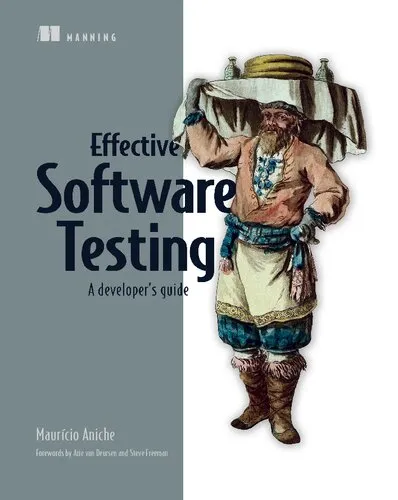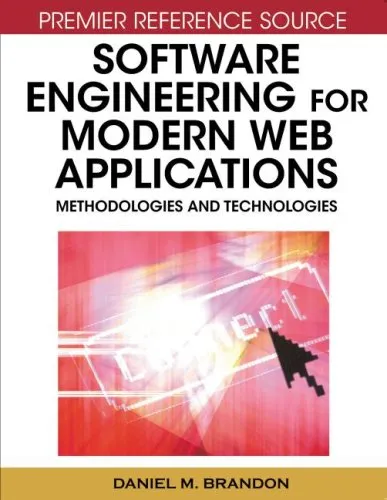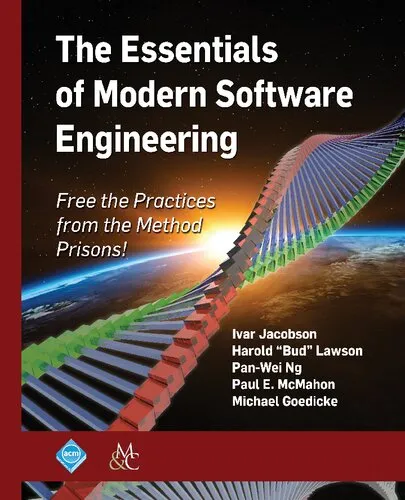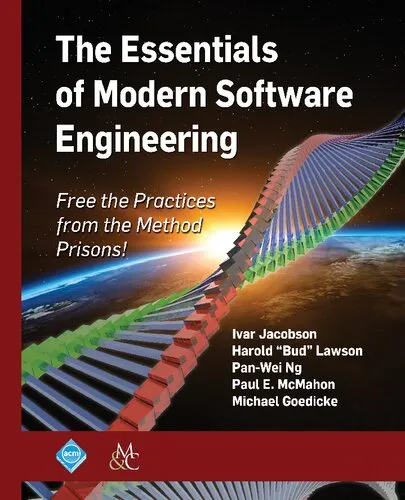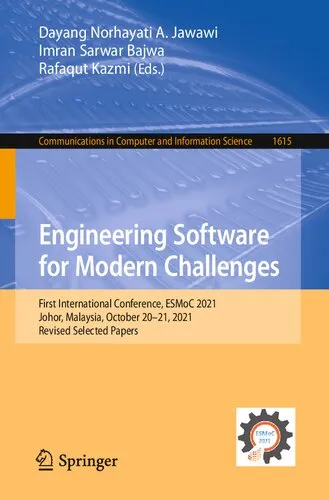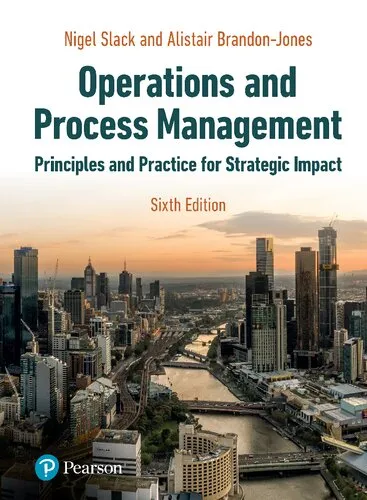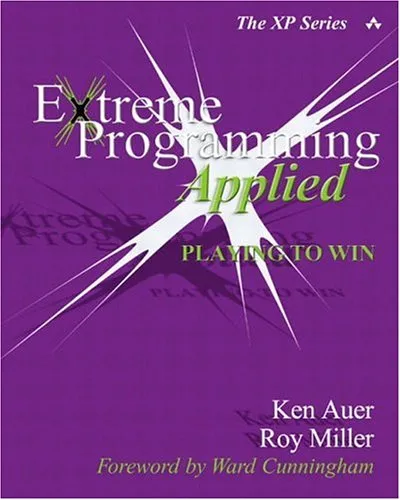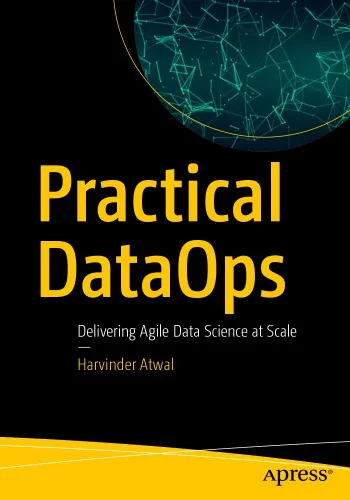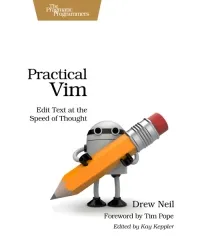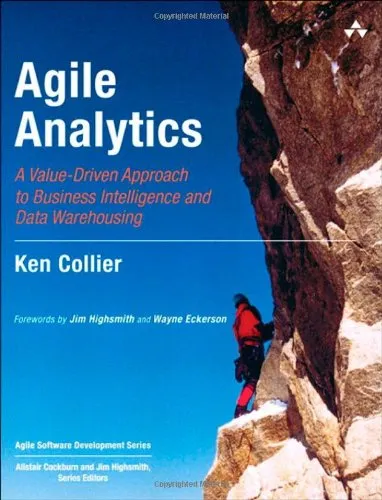Modern Software Engineering: Doing What Works to Build Better Software Faster
4.8
Reviews from our users

You Can Ask your questions from this book's AI after Login
Each download or ask from book AI costs 2 points. To earn more free points, please visit the Points Guide Page and complete some valuable actions.کتاب های مرتبط:
Introduction to "Modern Software Engineering: Doing What Works to Build Better Software Faster"
In a world where technology evolves at a relentless pace, software engineering has become a cornerstone for innovation and progress. David Farley's book, "Modern Software Engineering: Doing What Works to Build Better Software Faster," offers a profound exploration into the principles and practices that can elevate software development from a mere craft to an efficient and highly impactful discipline.
Detailed Summary of the Book
David Farley, an established authority in the realm of software engineering, meticulously dissects the methodologies and strategies that lead to the creation of exceptional software. This book serves as both a theoretical and practical guide for developers, software engineers, and tech enthusiasts interested in understanding the nuances of efficient software development.
The book unfolds with an exploration of the fundamental principles of software engineering, emphasizing the importance of adaptability, continuous improvement, and the pursuit of excellence. It underscores the significance of understanding the evolving landscape of technology and the necessity of integrating modern methods into traditional workflows.
Farley introduces readers to a series of well-founded, actionable strategies that aim to streamline the software development process. He elaborates on the critical roles that automation, testing, and collaboration play in enhancing productivity and ensuring quality outcomes. The book doesn't shy away from challenging outdated paradigms, urging practitioners to embrace change and innovation.
The narrative is peppered with real-world examples and case studies, illustrating how these principles can be applied effectively in a variety of contexts. By the book's conclusion, readers are equipped with a toolkit of concepts and practices that can revolutionize their approach to software engineering.
Key Takeaways
- Embracing change and innovation is crucial in an ever-evolving technological landscape.
- Automation and continuous testing are indispensable for producing high-quality software.
- Collaboration and effective communication can significantly enhance team productivity.
- Software development should be viewed as a disciplined, adaptive engineering practice.
- Learners are encouraged to question established norms and experiment with new methodologies.
Famous Quotes from the Book
"To engineer is to build with discipline, creativity, and precision."
"Change is not a threat, but an opportunity to improve."
"Automation isn't just about efficiency, it's about liberating creativity for more valuable tasks."
Why This Book Matters
The realm of software engineering is rife with challenges, and the demand for effective, reliable solutions is ever-increasing. This book emerges as a critical resource, offering insights that are relevant to both novice and experienced practitioners alike.
In "Modern Software Engineering: Doing What Works to Build Better Software Faster," David Farley not only provides a comprehensive examination of effective techniques but also instills a mindset oriented towards excellence. The principles articulated in this book encourage a culture of continuous learning and adaptation, which is vital for both personal and organizational growth in the tech industry.
This book is a roadmap for those seeking to harness the power of modern software practices and achieve higher levels of productivity and success in their projects. Farley's work bridges the gap between theory and practice, offering a rare blend of depth, clarity, and practical advice.
It is a must-read for anyone committed to advancing their understanding of software engineering and enhancing the impact of their work in the digital age.
Free Direct Download
You Can Download this book after Login
Accessing books through legal platforms and public libraries not only supports the rights of authors and publishers but also contributes to the sustainability of reading culture. Before downloading, please take a moment to consider these options.
Find this book on other platforms:
WorldCat helps you find books in libraries worldwide.
See ratings, reviews, and discussions on Goodreads.
Find and buy rare or used books on AbeBooks.
1645
بازدید4.8
امتیاز0
نظر98%
رضایتReviews:
4.8
Based on 0 users review
Questions & Answers
Ask questions about this book or help others by answering
No questions yet. Be the first to ask!
